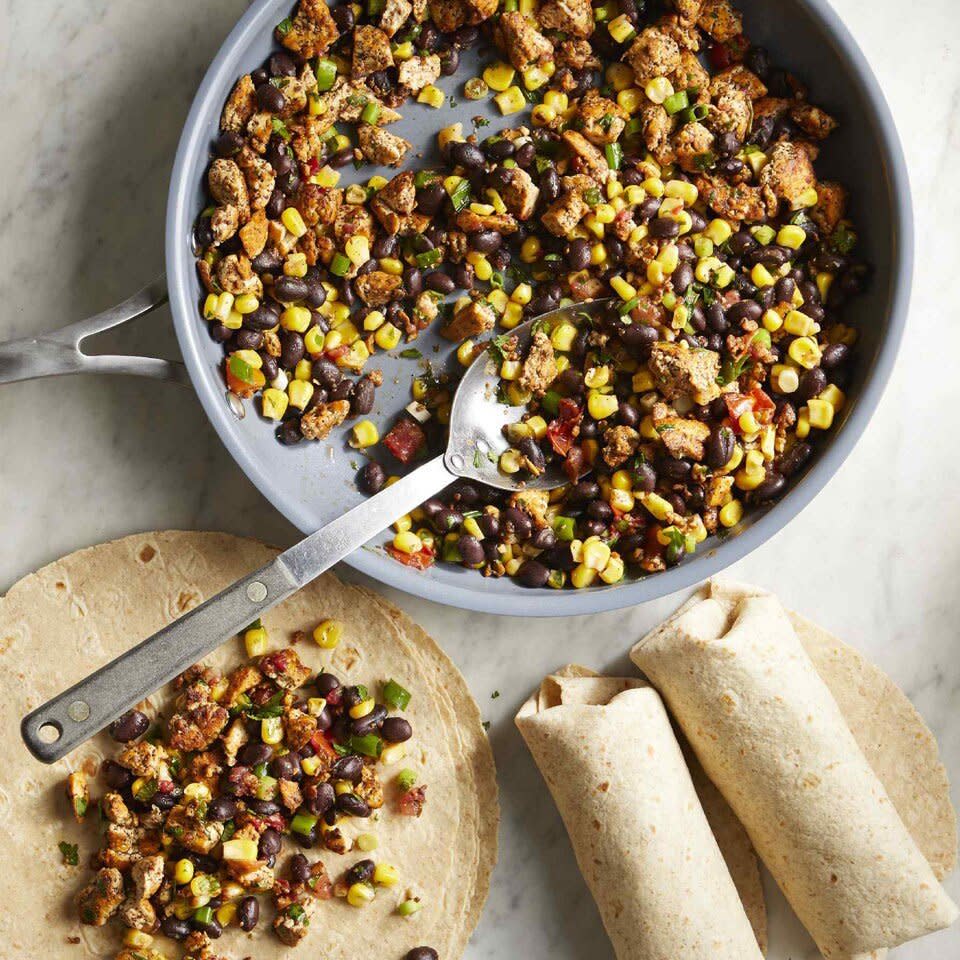4 Health Benefits of a Vegan Diet (and a Few Potential Drawbacks)

Pictured Recipe: Vegan Freezer Breakfast Burritos
See if switching to a completely plant-based diet is right for you.
Mention a vegan diet just a few years ago and you might have gotten an eye roll or two. For many folks, the plant-based diet-which excludes all dairy and animal products-once conjured up visions of crunchy granola and Birkenstocks. But no more. While only about 2 percent of Americans describe themselves as vegan, the diet is becoming more mainstream, with celebrities like Ellen DeGeneres and Beyoncé claiming to be followers (well, at least part-time). And there are plenty of healthy reasons people have gotten more on board with plant-based eating.
Could a vegan diet or more plant-based eating be right for you? Here's a look at some of the science-backed health benefits-and a few of the challenges to eating vegan.
Weight Loss
In a study of more than 1,100 dieters on a dozen different well-known weight-loss plans over 18 weeks-including Atkins and the American Diabetes Association's-the vegan group came out on top for weight loss, losing, on average, more than 5 pounds more than meat-eaters and more than 2 pounds more than vegetarians who ate eggs and dairy products. More research is needed, but experts say a healthy vegan diet based on plenty of fruits, veggies and whole grains does save on calories. Plus, it delivers soluble fiber, which makes you feel full longer-so you can skip those midnight trips to the fridge.
Heart Health
Eating vegan may help keep your heart healthy. Multiple studies have shown that compared to omnivores, vegans typically have lower rates of obesity, diabetes, high cholesterol and hypertension-all serious conditions that can up your risk of heart disease. It makes sense, since plant foods are high in fiber and have more heart-healthy fats (think avocado, nuts, olives) than animal products.
Get Inspiration: 22-Days of Healthy Vegan Dinners
Cancer Prevention
Eating a vegan diet may help reduce your risk of certain cancers. A 2016 review of studies comparing vegans, vegetarians and meat-eaters found that vegans have a significantly reduced risk of cancer overall. Other research suggests it may help reduce the risk of prostate and colon cancer in particular.
Read More: Vegan Lunches to Pack
Live Longer
Being a vegan may help you live longer. In a large study of more than 70,000 adults, vegan participants outlived meat-eaters and most other vegetarians. While the study didn't take into account other lifestyle factors, here's one possible explanation for the extra birthday candles: in addition to eating heart-healthy foods like nuts, fruits and fiber, vegans avoid red and processed meats, both of which have been linked to cancer and heart disease.
Potential Drawbacks to Eating Vegan
As with any diet, going vegan does have drawbacks. Some research suggests vegans may not get enough nutrients, particularly vitamins B12 and D, along with calcium and omega-3s. Talk with your doctor to see if you'll need supplements.
Read More: Must-Eat Vegan Foods to Get the Nutrients You Need
There are practical problems, too. Sure, more vegan options are popping up on restaurant menus, but dining out can still be a challenge. And be prepared to check food labels in grocery stores for hidden animal ingredients like anchovies in Worcestershire sauce, honey in salad dressing. Finally, you'll most likely need to get a little creative with meal planning, especially if you live with non-vegans ("You want us to eat what?")
Still, with a little careful thought, going vegan can pay off. And if you're not ready to commit fully, you can alway make an effort to eat more plant-based foods or fewer animal products. Talk with your doctor, go slow, and see if it's right for you. Remember that, in the end, it's not about being vegan-it's about being healthy, and enjoying what you eat.

